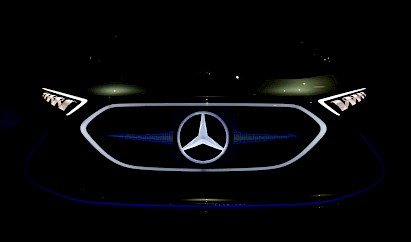Mercedes-Benz to shift focus to electric vehicles by 2025
 Mercedes-Benz will shift its focus entirely to electric vehicles in 2025 and be prepared to sell nothing but electric cars by 2030, the company said Thursday, adding a caveat that the transition depends on “market conditions.”
Mercedes-Benz will shift its focus entirely to electric vehicles in 2025 and be prepared to sell nothing but electric cars by 2030, the company said Thursday, adding a caveat that the transition depends on “market conditions.”
Mercedes thus joined a growing list of companies including General Motors, Stellantis and Renault that have declared their intention to hasten the demise of internal combustion engines in favor of battery-powered vehicles with no tailpipe emissions.
Increasingly, they have little choice. The European Union will effectively ban new cars with internal combustion engines in 2035, while Britain, Norway and other countries have also set expiration dates for vehicles that run on fossil fuels.
Mercedes, the luxury carmaking division of Daimler, also faces pressure from Tesla, which has been stealing well-heeled buyers and is building a factory in Berlin. Tesla leads rivals in batteries and autonomous driving technology. But Ola Källenius, the chief executive of Daimler, said that Mercedes wants to seize the initiative with, for example, a model to be unveiled next year that will go 600 miles on a charge. That would be about 50 percent farther than Tesla’s longest-range car.
“We want to be people to make it happen,” Mr. Källenius told reporters Thursday, “not just go with the flow.”
Mercedes said it would invest 40 billion euros, or $47 billion, on electric cars, vans and light commercial vehicles by 2030. In 2025, the company will introduce three new electric vehicle platforms — collections of components and technology that can be shared among different models — and will no longer develop platforms for internal combustion engines.
The platform shift is significant because it will allow Mercedes to exploit some of the design potential of battery powered vehicles, such as more interior space. Electric motors are smaller than internal combustion engines and do not require large transmissions.
Despite the huge investments required, Mr. Källenius said he was confident Mercedes could continue to enjoy profit margins of more than 10 percent. Electric vehicles have generally been less profitable for carmakers because of the cost of batteries, but Mr. Källenius pointed out that battery prices have been dropping fast.
Mercedes is planning to take tighter control of battery production. Working with partners, it will establish a global network of battery plants and will also build its own electric motors.
One of the new battery factories will be in the United States, three will be in Europe and four will be in Asia. Daimler executives said they had not yet decided on a location for the U.S. plant, but it will probably be close to Mercedes’ existing manufacturing complex in Tuscaloosa, Ala.
Daimler stopped short of promising not to sell any more cars with internal combustion engines. Some regions of the world by 2030 may not have the charging networks that make owning an electric vehicle practical.
“Mercedes-Benz will be ready to go all-electric at the end of the decade,” the company said in a statement, adding, “where market conditions allow.”
You can return to the main Market News page, or press the Back button on your browser.

